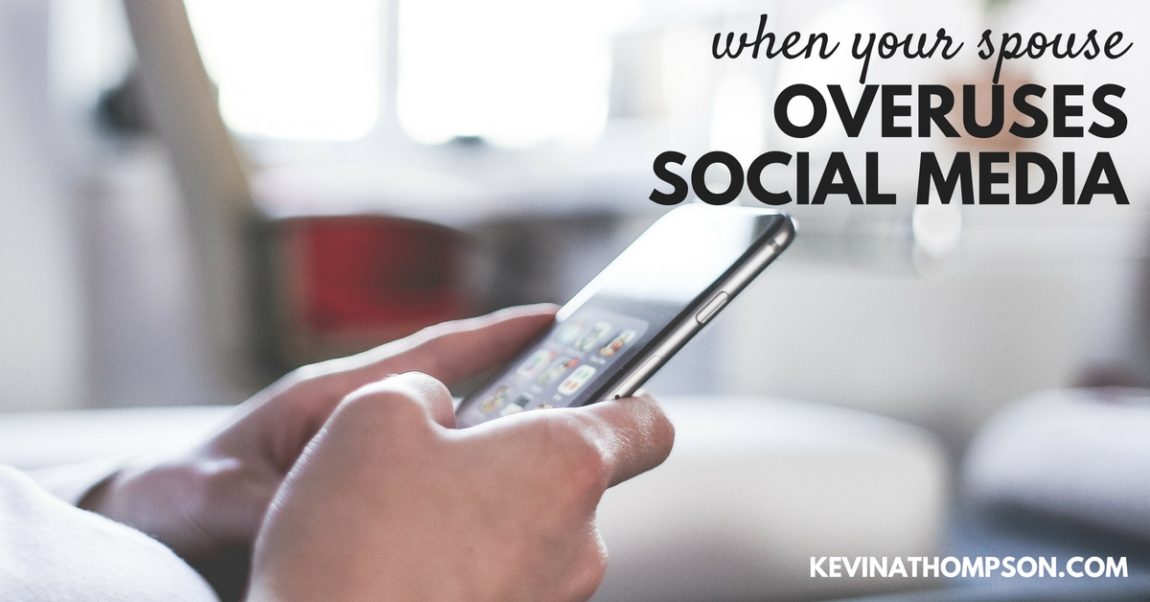I’m not allowed to use my cell phone at the dinner table. It’s a house rule. If you are a guest at our house, you won’t be allowed to use your phone at the table either. I’ll never mention it, but Ella will be quick to let you know if you violate the rule.
We began the no phone at the table policy several years ago. In talking about my social media use, Jenny mentioned a desire to have at least some time in which I was off the grid. She mentioned family dinner time as an example. So each night during dinner, my phone is in another room while we are having dinner. (See: 4 Cornerstone Habits of Healthy Families)
Social media is addictive. How it impacts the brain mimics many other addictive substances. It rewards us for interaction, serves as a distraction from stress, and is an easy way to avoid painful experiences. Many people have no idea the control Facebook or Instagram plays over our lives. We likely check social media four to fives times more often than we consciously realize.
While everyone should monitor their social media use and take steps to protect against addiction, what do we do when our spouse overuses social media?
First, we must frame the issue in the appropriate way. “I’m frustrated by how much you use social media.” Own the issue. Don’t say, “You are addicted to social media.” Maybe they are, maybe they aren’t. But framing it as “you have a problem” allows them to deny it. By framing it as “I have a problem with your social media use” it cannot (or at least should not) be denied by your spouse.
Second, recognize social media use is like a secondary issue which masks the real problem. Do you really have a problem with their social media use or are you upset they aren’t giving you proper attention, are failing to handle other responsibilities or are oversharing private information? Rarely is the actual use of social media the issue. More often we are frustrated by some unmet need and the frustration expresses itself with their social media use. (See: Facebook Doesn’t Cause Divorce)
Once we understand that social media probably isn’t the actual issue, then we are ready to find a solution.
4 Steps to a Solution
Discuss it. Don’t hint at it or passive aggressively mention it some other way. Name it. Calmly, but assertively, engage in a conversation about the issue. Don’t blame or deflect. Don’t blow it out of proportion or diminish the issue. Put the problem in its proper terms. Share, listen, question, and discuss.
Negotiate it. After you get to the real issue–and remember, it probably is about more than social media–begin to navigate a solution. Create times or spaces when social media is off limits. Have certain topics that require approval from your spouse before they are allowed to be posted. If your spouse ever feels uncomfortable with a post, delete it. When your spouse talks to you, put your phone down, look them in the eye, and listen.
Live it. Whatever you say you are going to do, do it. Don’t verbally agree to something and then refuse to do what you say. That would be passive aggressive behavior (for more, see HERE). One key to relational health is being able to discuss an issue, negotiate a solution, and then live out that solution. Doing what you say you will do is vital to a successful marriage.
Review it. Problems are rarely solved. More often than not, we find temporary solutions that will have to be re-discussed and re-negotiated at a later time. Never feel like one conversation is all it takes. Have a continuing conversation about the issue to make sure you are both on the same page.
Social media has many pros and cons in our life. It can add great things, but it comes with many drawbacks. It shouldn’t surprise us when social media causes some frustration within our relationships. Instead of being shocked, we should expect moments where we have to discuss what we are doing and find a better course of action.
What’s one simple tip people could apply to better their social media use?




6 Responses to When Your Spouse Overuses Social Media